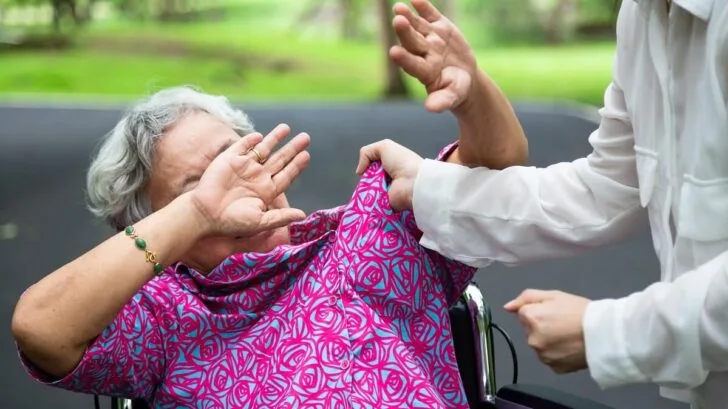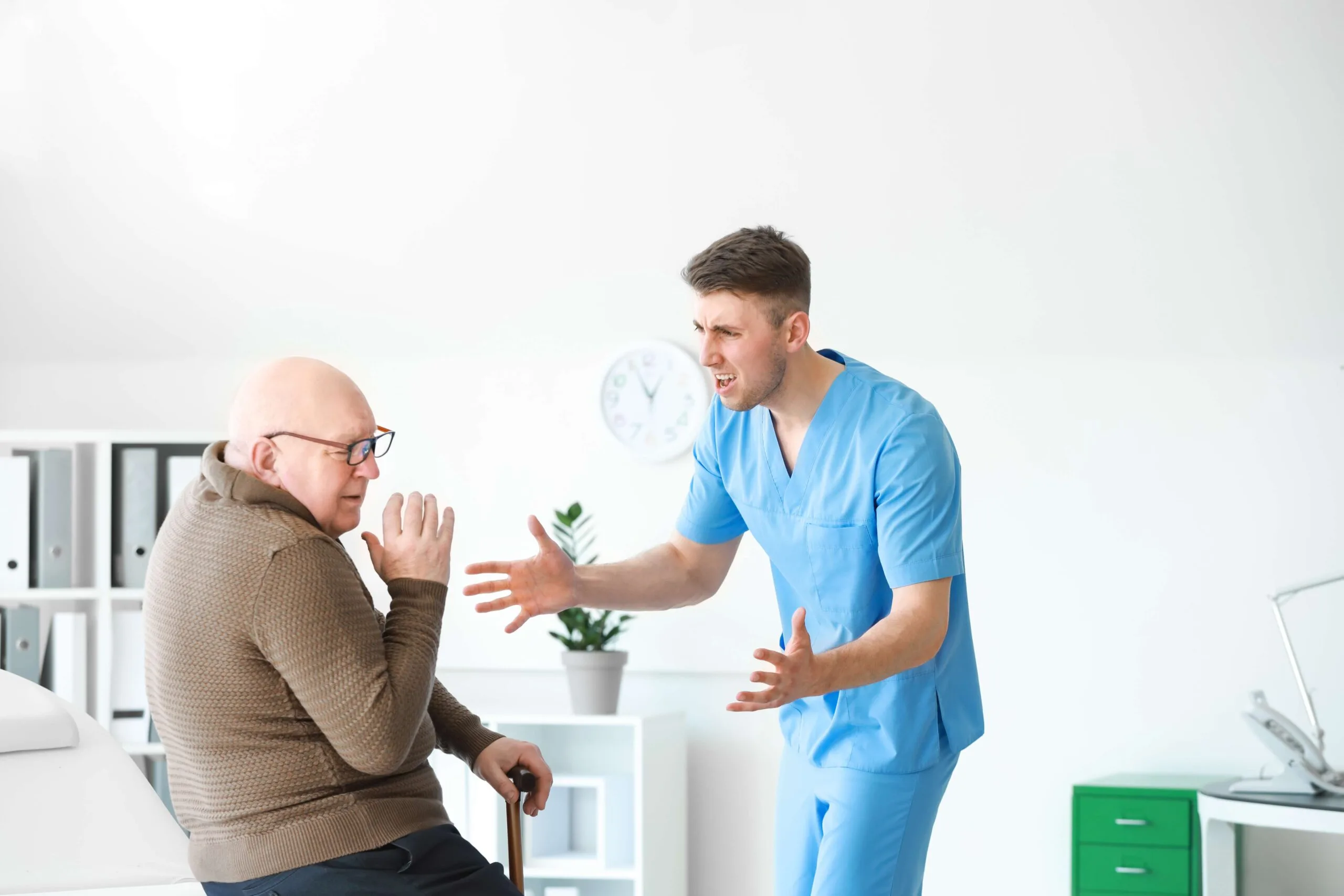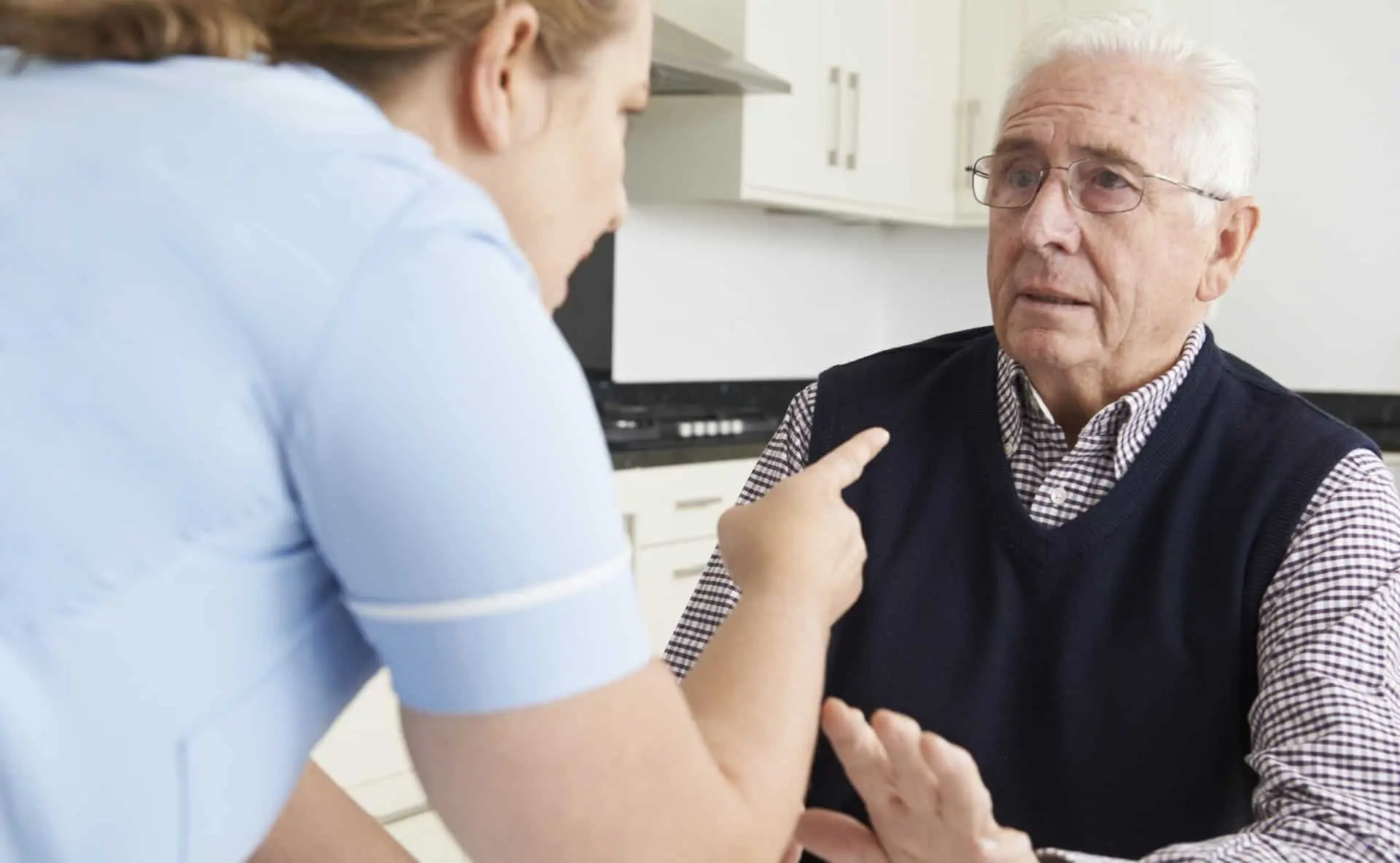
What Happens If You Are Accused of Elder Abuse? + What to Do
What happens if you are accused of elder abuse? June 15 is the world elder abuse awareness day. The humanhealthmag group is always working to increase the awareness of the elderly, and on this day, it is its duty to prepare and provide you with an article to increase the awareness of the elderly regarding elder abuse and how to deal with it.
Pay attention to the following statistics given in the 2018 World Health Organization report on elder abuse:
- Among 6 people who are over 60 years old, at least one person has been subjected to elder abuse in the society.
- At least two of the three staff members of nursing and care centers for the elderly have participated in elder abuse. This means that the rate of elder abuse in these centers is increasing.
- Abused elderly suffer long-term physical and mental injuries.
- The rate of elder abuse is growing rapidly in societies where the age of society is increasing.
- In 2015, there were about 900 million elderly people (over 60 years old) in the world, and this population is expected to reach about 2 billion in 2050.
In this case, paying attention to the abuse of the elderly and dealing with it is considered a serious matter. Then, what happens if you are accused of elder abuse? Elder abuse is a serious crime that can have devastating consequences for victims as well as the accused. If you have been accused of elder abuse, it is important to know what your rights are and how you can defend yourself.
What Is Elder Abuse?
An activity that is carried out once or continuously by any person (a caregiver, a friend or family member or another person) with any kind of ratio intentionally, knowingly or negligently and causing damage or transferring stress to an elderly person is called elder abuse. This type of violence, which is against human rights, can include physical, sexual and psychological abuse or abuse of emotions, abuse of financial resources, abandonment, neglect and treating the elderly with anger and disrespect.

Dimensions of Elder Abuse
Elderly abuse is an important public health problem. According to documents obtained from a study in 2017 in 28 countries with different political regimes, about 15.7% of people over 60 years old have been abused in some way. Out of these 28 countries, 12 countries have been with low or medium income level.
This means that 1 out of every 24 people has been abused, and unfortunately, due to the conditions that prevail among the elderly, many reports of elder abuse are often not submitted to the country’s authorities. So, all the numbers are estimated and it can be easily said that the actual numbers are far more than the announced numbers.
Elder Abuse Risk Factors
What happens if you are accused of elder abuse? In response to this question, we must first understand what are the examples of elder abuse and the risk factors of elder abuse? Hitting, slapping, imprisoning, injuries, burns, overuse of medicine or lack of it, not taking care of elderly person’s wounds, not consuming healthy food and vitamins, and anxiety and helplessness are other examples of elder abuse. Elderly abuse is divided into types of physical abuse, emotional or psychological abuse, tolerance and neglect, and financial abuse.
The risk factors of elder abuse that may increase the potential of elder abuse are identified at the individual, social and sociocultural levels. Risks at the individual level include poor physical and emotional health, mental disorders, and alcohol and drug abuse.
At social and socio-cultural levels, social isolation of caregivers and elderly people due to loss of physical and mental ability, loss of friends and family members, erosion of bonds between family members and lack of funds for care expenses are the risk factors of elder abuse. Also, inheritance and property distribution systems affect the distribution of power in the family. Migration of young couples and leaving parents alone in societies where children traditionally take care of parents are also risk factors for elder abuse.

Socio-Cultural Factors Affecting the Possibility of Elder Abuse
Socio-cultural factors can affect the possibility of elder abuse in the following cases:
- Age stereotypes based on which the elderly are introduced as weak, incapable and dependent people.
- The quality of communication between generations of a family is decreasing.
- Ownership systems that affect the distribution of power and goods among families.
- Leaving the country of young couples, which causes their parents not to be with them when they need help.
- Lack of financial resources for the maintenance of the elderly.
In institutions where the elderly are kept, the possibility of elder abuse is higher if:
- The health and welfare standards of that country for the elderly are low.
- The employees have received limited training or are involved in the nervous pressure of the work environment and excessive working hours.
- Policies should lead people to establish care institutions instead of creating residences for the elderly.
What Happens If You Are Accused of Elder Abuse?
If a person makes a charge of elder abuse, judicial authorities will begin an investigation to determine whether a crime has been committed. If the person is found to have committed a crime, they may be arrested and, if convicted, face heavy fines and lengthy prison terms. In addition, the injured person or his family may file a lawsuit for compensation. Accusations of elder abuse can damage the victim’s reputation and relationships with friends, family, neighbors, and colleagues.

What Happens If You Are Accused of Elder Abuse? Penalty for Elder Abuse
As we said the crime of elder abuse includes any behavior or action that leads to physical, mental or financial harm to the elderly. This crime can occur in different ways, including physical, emotional, financial abuse, or even neglecting the basic needs of the elderly. Types of elder abuse include:
- Physical abuse: Hitting, pulling, or any form of physical violence
- Emotional abuse: threatening, humiliating, or causing fear and anxiety to the elderly
- Financial abuse: Theft, fraud, or unauthorized use of the elderly’s property and financial resources
- Neglect: neglecting basic needs such as food, clothing, medicine, and medical care
Penalties:
- Second-degree felony: If the abuse results in serious harm to the elderly, this crime is considered a second-degree felony. The punishment includes imprisonment from 5 to 15 years and a fine of up to 10,000 dollars.
- Third-degree felony: If the abuse does not result in serious injury, this crime is considered a third-degree felony. Its punishment includes a shorter prison term and a lower fine than a second-degree felony.
What Should You Do If You Have Been Falsely Accused of Elder Abuse?
What happens if you are accused of elder abuse falsely? If you have been wrongfully accused of elder abuse, follow these steps in detail to defend your rights:
- The first and most important step is to contact an experienced attorney who specializes in defending criminal charges, especially elder abuse charges.
- Gather any evidence that proves you are innocent. This evidence can include text messages, emails, witness testimony, and any other evidence that the allegations are false.
- Remember that any statement you make without a lawyer present can be used against you. Therefore, avoid discussing the matter with other people, especially the police or the media, without consulting a lawyer.
- Write down all the details of the incidents that led to the charges. This includes dates, times, places and people present. Accurate documentation can help your attorney build a strong defense.
- Even if you feel the need to contact the accuser directly to resolve the issue, don’t. Any contact can be interpreted as an attempt to threaten or influence witnesses and end up against you.
- False accusations can be very stressful and upsetting, but it’s important to remain calm and patient. Work with your attorney and follow his or her advice. Your lawyer must carefully review the evidence that the defendant presents against you and evaluate its strengths and weaknesses. This analysis can help your lawyer present an appropriate defense.
- If you have witnesses who can testify in your favor, or evidence that can prove your innocence, you should provide this information to your attorney. Do not attempt to interfere with the legal process in any way. Let your lawyer follow all the legal procedures and represent you.
Concluding Remarks
In previous article, we explain that can a bedridden person be left alone? In this article from humanhealthmag, we talked about what happens if you are accused of elder abuse? It should be emphasized that false accusations of elder abuse can have serious and irreparable consequences for you. Therefore, the importance of quick and correct action in the face of such accusations should not be overlooked.
Many strategies have been used to prevent elder abuse and reduce its consequences. The activities that have been carried out mainly in high-income countries to prevent elder abuse include:
- Public and professional campaigns to increase community awareness.
- Screening of possible victims and harassers.
- Special programs in schools
- Support programs for maintenance service providers (such as how to manage stress)
- Care policies in special residences to define and improve care standards.
- Training of nurses and care service providers to care for people with Alzheimer’s.

FAQs About What Happens If You Are Accused of Elder Abuse?
What should I do if I am accused of elder abuse?
Contact an experienced criminal defense attorney immediately. A lawyer can guide you through the legal process and help you build a strong defense.
Should I explain to the police or authorities that the allegations are false?
Do not make any comments without the presence of a lawyer. Anything you say can be used against you, so it’s best to consult with your attorney first.
How can I gather evidence to defend myself?
Collect all documents that prove your innocence, such as text messages, emails, and witness testimony. Also, document all the details of the incidents that led to the charges.
Should I contact the person who accused me?
No, avoid any contact with the accused. These calls can be interpreted as attempts to threaten or influence witnesses and end up against you.
What should I do if the charges go to court?
Your lawyer will prepare you for court hearings. This includes preparing to testify and answering the prosecutor’s questions. Work with your attorney and follow his or her advice.
How long can the legal process take?
The length of the legal process depends on the complexity of the case and the judicial system in your area. Your lawyer can provide more detailed information about this.
